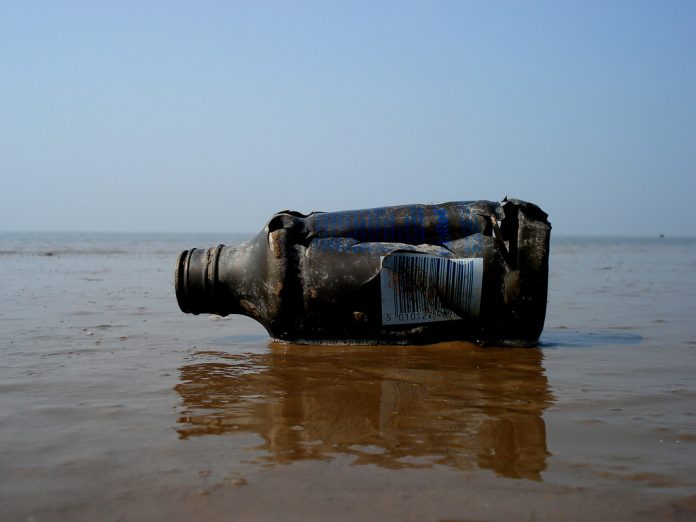To clear up our oceans, the European Parliament on October 24 voted to ban widely-used, throw-away plastics such as straws and cotton buds.
MEPs voted overwhelmingly to adopt a ban or drastically reduce the impact of certain plastic products in the environment with 571 votes in favour, 53 against and 34 abstentions. The proposal seeks to ban 10 single-use plastic products with readily available alternatives by 2021. Also, EU states would be obliged to recycle 90% of plastic bottles by 2025 and producers to help cover costs of waste management.
“We are sending a strong signal to industry,” EU lawmaker Federique Ries, a Belgian liberal, told the Reuters news agency. “There is broad and growing popular support on this issue,” added Ries, who is representing the parliament in negotiations with EU governments.
The EU’s final rules still need to be approved in talks with member.
According to Reuters, the deputy head of the EU executive, who is overseeing efforts to cut down on plastic waste, called for action.
“Europe has to come to terms with the fact that we cannot just put it on someone else’s shoulders,” EU Commission First Vice President Frans Timmermans told Reuters, saying he was encouraged by a shift in the private sector towards more voluntary recycling and public activism on the issue.
“It is the first strategy in the world that looks at the whole issue of the role of plastics in our economy,” he added. “If we don’t move now, if we don’t move swiftly… you will have more plastic in the oceans than fish.”
The European People’s party (EPP) group in the European Parliament welcomed the vote on the ban. “We are at the eleventh hour in dealing with plastic litter in Europe. If we put all the plastic waste that floats in our seas together, we would have enough to fill an area as big as Central Europe,” said Karl-Heinz Florenz MEP, EPP Group Spokesman.
He said the aim is “to change the way we produce and consume plastic” and that the EU needs to push for more innovation in the industry so that new materials will become available.
In turn, the Progressive Alliance of Socialists and Democrats (S&D) group noted their commitment to change the existing culture of disposable products.
“Plastic has become a plague for our planet, with 8 million tonnes being thrown to the oceans every year,” said S&D spokesperson on the issue, Massimo Paolucci. “We all need to take responsibility, and we are pushing for Europe to do its part a soon as possible.”
The European Conservatives and Reformists (ECR) group hailed the plan to reduce single-use plastics as “ambitious”. ECR Flemish MEP Mark Demesmaeker, who followed the proposals for the group, welcomed the new measures which he said will help turn the tide against the world’s growing plastic waste problem.
Speaking after the vote, Demesmaeker said: “It’s time we end the days of disposable plastic and start finding alternatives or at the very least using it more sustainably.”
As for the European Green Party, its co-chairs Reinhard Bütikofer and Monica Frassoni said: “This is a monumental step towards tackling single-use plastics that clog our oceans and litter our beaches… We need to send out a clear signal to businesses that it’s time to ditch single-use-plastics and opt instead for sustainable solutions wherever possible. European citizens also have a role to play in consuming more sustainably and in the interests of a cleaner planet.”

